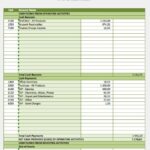
Small businesses that are required how to write off a bad debt to pay estimated quarterly taxes but fail to do so may be assessed a penalty by the IRS. Common categories include asset, liability, equity, revenue, and expense accounts. Minimum deposit requirements can depend on the type of business account and whether you’re opening the account at a traditional bank, credit union, or online bank. It depends on the size of your business and the complexity of its operations. Outside accountant costs typically increase with the size of the business.
Here are the main questions to ask that can guide you toward creating the best bookkeeping records for your small business. At the end of the accounting period, the accountant must prepare the adjusting entries to update the accounts that are summarized in the financial statements. This is a necessary chore that helps small business owners track and manage their money effectively – especially during the early stages. Besides keeping you cognizant about your business’ past and present performance, small business accounting also helps in generating invoices and completing payroll. If you’re a traditionalist and are more interested in tracking income and expenses than bank connectivity or cloud access, check out GnuCash. Before you can start recording any financial transactions, you’ll need to create a chart of accounts for your company.
Accounting Tips for Small Businesses
Accurate invoicing is the key to getting paid in a timely and organized manner. Block out a weekly time to get your paperwork in order and avoid letting the receipts pile up. Check out our guide on how to establish a small business so you can start turning a profit ASAP.
Check your inventory
The Ascent, a Motley Fool service, does not cover all offers on the market. Xero starts at $9/month for the Early plan, though most small businesses will find the Growing plan, at $30/month, more suitable. With the help of good software, accounting for tax loss harvesting+ a small business can be much easier than you think.
- Extend credit on moderate terms, if needed and make sure to document everything to pursue payment through a collection agency or the court.
- Some software targets small business accounting professionals or bookkeepers, while other programs tailor to business owners looking to develop their accounting skills.
- Having fundamental accounting skills, such as navigating popular bookkeeping software and tracking income for future tax filings, can pave the way to business success.
In simple terms, accounting helps you steer your business in the right direction. The accounting tips for small businesses can help you figure out long-term goals, ride financial ups and downs and increase your profits. Moreover, efficient bookkeeping strategies can help you stay out of trouble with the IRS. This content is for information purposes only and should not be considered legal, accounting, or tax advice, or a substitute for obtaining such advice specific to your business. No assurance is given that the information is comprehensive in its coverage or that it is suitable in dealing with a customer’s particular situation. Intuit Inc. does not irs 2018 form w have any responsibility for updating or revising any information presented herein.
Record transactions

But once your business is big enough that you can’t (or simply don’t want to) wrangle finances by yourself, it’s probably time to get a bookkeeper or CPA on your payroll. You can learn a lot about how to do accounting for small businesses just from browsing the internet. But nothing beats up-front, personalized advice from a certified professional—in this case, a bookkeeper, accountant, or CPA. Bookkeepers, accountants, and CPAs all bring something different to the table.
Key accounting best practices for small businesses include keeping businesses’ finances separate from personal finances, maintaining accurate records, and tracking income and expenses. Small businesses may also want to consider hiring professional accountants or automating their finances with accounting software. While recording by hand may be the cheapest solution, it can be time-consuming and prone to errors. Basic small business bookkeeping includes tracking your expenses, recording the transactions, and reconciling your business bank statements. It can also include putting together the three key financial statements—the income statement, balance sheet, and cash flow statement.
Basic Bookkeeping for Small Businesses
Under the cash-basis method of accounting, you record income and expenses when cash transactions are done. For example, you record revenue for a product only when the customer pays you for the product. With a little bit of preparation, even novices will be able to take on bookkeeping or accounting tasks for their business. Whether you choose the manual method or opt for accounting software, there are tons of accounting tools available for you to take advantage of. When all of your transactions have been entered, you’re ready to run your financial statements.


